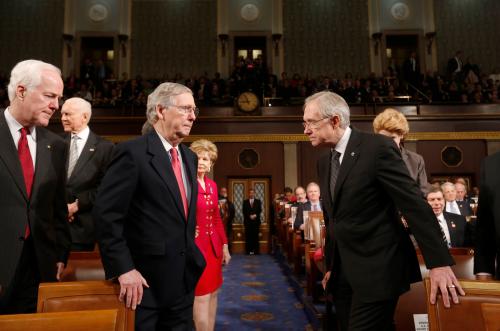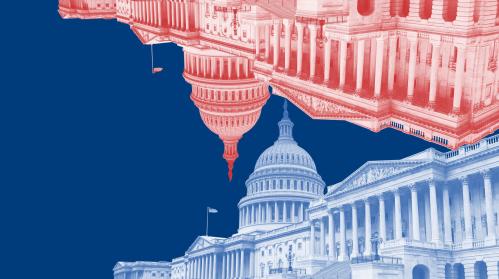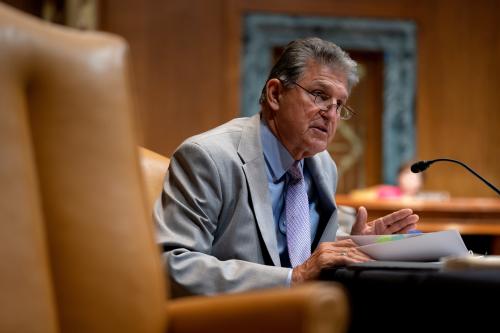It is not surprising that Senator Joe Manchin is the man to watch in Washington. It was obvious once the Democrats took control of the Senate that the centrist Democratic Senator from West Virginia, (a state that voted for Donald Trump over Joe Biden by nearly 40 points), would be the deciding vote on the most important legislative matters in this Congress.
But now it is crunch time for him, his fellow Democrats, and the country. There are only a few weeks left in the legislative calendar this year. Unless Senate and House Democrats agree on both the bipartisan Infrastructure bill, which would not been put together and passed the Senate without Manchin’s guiding hand, and the social spending package during this time, neither is likely to pass both Congressional chambers. Likewise, if Congress cannot quickly agree on the Freedom to Vote Act, which Manchin engineered, more state legislatures will be free, without fear of federal preemption, to enact legislation that restricts voting and, more dangerously, politicizes the counting of votes, between now and the mid-term elections in 2022.
Manchin so far has been the principal roadblock, however, to Congressional action in both areas – though he likely is providing welcome political cover for one or more moderate Senators from swing states, and perhaps a few moderate House Democrats who share his views. On social spending, Manchin has announced his opposition to any package with a 10-year price tag above $1.5 trillion, well below the $3.5 trillion supported by a large majority of Democrats in both chambers. (There is essentially no Republican support for any additional social spending, but it will not be needed under budget “reconciliation” procedures, which require only a majority in both chambers, if Democrats can agree among themselves).
Meanwhile, the Manchin-designed voting rights compromise cannot pass without 10 Republican Senators’ votes, which Manchin has vowed to get by next week when Majority Leader Schumer asks the Senate for a procedural vote on the bill. Because the chance of that happening is between remote and zero, passage of Manchin’s voting rights bill will require some modification of the filibuster – such as a carve-out for “democratic process” or voting rights matters, analogous to the budget reconciliation and political appointments carve-outs – which Manchin ruled out on September 14.
There is a possible compromise to be had by trading off his positions on the spending and voting rights matters, but it will take active involvement soon by President Biden, and some give both by Manchin and progressives. One problem, however, is that the substance and the politics point in opposite ways on what this compromise would look like.
On substance, Manchin is on stronger ground for his position on the size of the additional spending package than on voting rights and the filibuster. His main concern that additional deficit financed spending adds to inflation risks is not unfounded. The Fed, after all, has consistently underestimated inflation over the past year, which may be one reason it is poised to move forward its plans to “taper” its bond purchases, putting upward pressure on interest rates. While the pandemic-aggravated supply shortages responsible for the spike in the inflation numbers should ease over coming months, uncertainties remain over the impact of the delta or possibly new COVID variants on the pace of this transition. In addition, the fact that consumers already have increased their expectations of future inflation to 4% over the next three years, based on recent numbers, is worrisome, even though bond market investors appear less worried than consumers.
It is in this environment that Senator Manchin worries both about the macroeconomic impact of additional spending that is not fully paid for, especially given that the nearly $2 trillion in pandemic support enacted earlier this year was entirely deficit financed, and the increasingly risky political impact for moderate Democrats as tax increases required to pay for additional spending rise. Despite claims that the bipartisan Infrastructure package is fully paid for, the Congressional Budget Office has estimated that, in fact, it will require approximately $250 billion in deficit financing over the next decade. Though Manchin’s $1.5 trillion ceiling for the reconciliation spending package should be easily paid for with announced Democratic plans for hiking corporate and individual taxes (on those with incomes above $400,000, the Biden-backed threshold), adding more spending on top of that will require larger tax increases, especially for the full $3.5 trillion that progressives want (and that make moderates nervous) or entail even more deficit financing. Manchin can point to the political math: Democrats can’t afford to lose one seat in the Senate and only a few in the House in the 2022 mid-terms without losing control of Congress.
On voting rights, however, Manchin’s hard work for a compromise bill will ring hollow if the procedural vote on it scheduled this week attracts little or no Republican support, as expected, and a voting rights carve-out from filibuster rules is not enacted. The failure of Republican support on that initial vote may be the political cover that Manchin seeks, however, for compromising on the filibuster. For Democrats and the Biden Administration that must be their hope.
But then the politics could point toward a different ordering of priorities. Given the strong support for Trump in West Virginia and the likely strong acceptance of Trump’s false claims about the 2020 election counting, Manchin’s support of federal voting legislation too easily could be painted by his 2024 Republican opponent as contradicting Trump. This would pose a greater risk for Manchin’s reelection prospects than voting for a somewhat larger social spending bill that would largely benefit his home state voters, regardless of party.
So, this is a Profile in Courage moment for Manchin, and a real politik challenge for progressives. Over both the short and long runs, enacting meaningful voting rights legislation is more important for Democrats, the President, and the country than the size of the additional social spending package. Progressives can always run in 2022 and 2024 on the need for even more social spending. But a missed opportunity to strengthen voting rights and protecting the counting of votes may not be reversed for a long time.
Meanwhile, for Manchin, he likely never will have greater power than at this moment in time. After the mid-terms, it is highly unlikely that the 50-50 composition of the Senate will persist: either Democrats win one or more seats, and Manchin loses his pivotal role, or the Democrats lose control altogether, in either Congressional chamber. The question he faces, therefore, is what he wants his legacy to be. My educated guess is that he will not want to be remembered as the one individual who could have preserved voting rights and integrity, but then backed away at the last moment by turning down the voting rights filibuster carve out.
The test for both Manchin and, for that matter, all other Democrats is whether they have the wisdom and the courage to seize the moment, compromise and declare victory on both fronts – or potentially lose everything that they have been fighting for.
The Brookings Institution is committed to quality, independence, and impact.
We are supported by a diverse array of funders. In line with our values and policies, each Brookings publication represents the sole views of its author(s).








Commentary
Manchin and the Democrats’ last chance
September 17, 2021